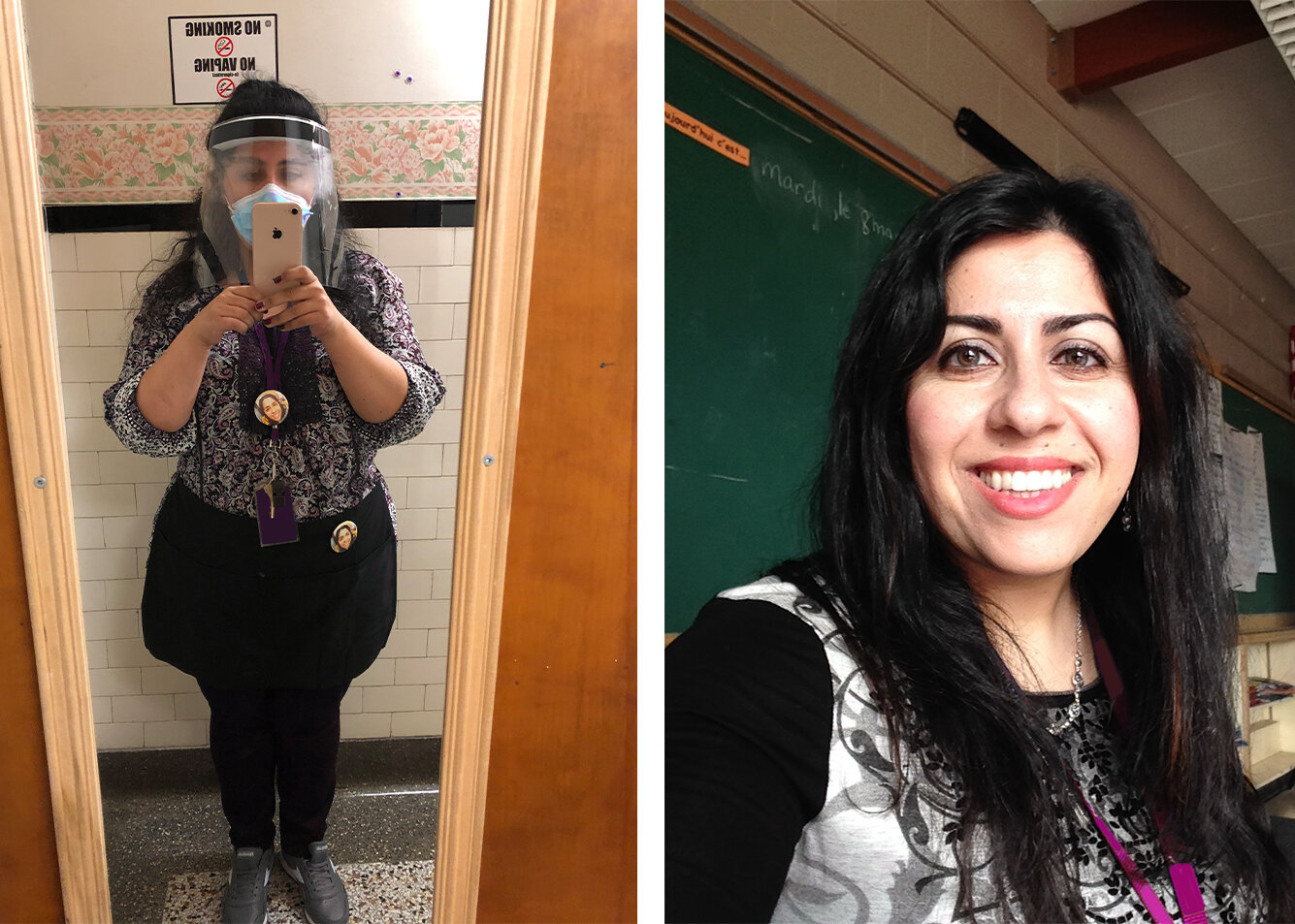Shideh Houshmandi, Elementary Teacher
COVID Chronicles
Shideh Houshmandi is a fourth-grade French immersion teacher in Hamilton unionized with the Hamilton-Wentworth Elementary Teachers’ Local (HWETL) of the Elementary Teachers’ Federation of Ontario (ETFO). With over 20 years of experience in the teaching profession, Shideh brings a large breadth of knowledge and diverse experience to her work. COVID has proved challenging as Shideh balances life as a single mom and a full-time teacher. Her passion for teaching and dedication to her students has motivated her during the pandemic.



Shideh was born in Tehran, Iran and immigrated to Grimsby with her parents and identical twin sister when she was an infant in the late 1970s. While studying neuroscience at McMaster University, Shideh decided to take a Japanese language course on a whim. After discovering she had a knack for speaking Japanese, she tried her hand at a teaching exchange program in Japan where she remained for seven years as a school teacher. “After my experience in Japan I knew I wanted to continue in this profession,” she reflects. Now, as a fourth-grade French immersion teacher she feels grounded in teaching, “I know there’s a huge profound purpose to everything that I am doing and it really motivates me.”
For teachers, working during the pandemic has been curveball after curveball: from the introduction of PPE, to social distancing, to online teaching. On the problems of technology and online teaching, Shideh reflects “the inequities are so profound...some students have state of the art devices at home...and then you have others who have to borrow a defective iPad from the school and somehow be able to do the work. It’s almost heartbreaking.”
As a single mom of two sons whom she adores, Shideh has also experienced the gendered impact of COVID firsthand. When the first lockdown began in March of 2020, many of the 80% of elementary school teachers who are also women had to make the impossible decision between caring for their own children who were now at home while also working full-time jobs. “It’s almost an impossible task,” Shideh shares, “when I have to choose between my own children and...addressing the educational needs of other people’s kids, that’s a bit of a pickle for me…” Without access to affordable childcare, many mothers across professions have had to take unpaid leaves in order to care for their families. Luckily, Shideh has the support of her extended family and parents.
Shideh describes herself as an empath and shares that the impact of COVID has been incredibly draining for her personally, “I always feel like, am I doing enough?” Many parents of her students don’t have paid sick days at work, which has negatively impacted her classroom. Out of pure need, some parents send their sick children to school because they can’t afford to take an unpaid day off of work. Workers across all sectors have indicated during the pandemic that paid sick days save lives, “It’s a no brainer, I don’t know why they [the provincial government] are so reluctant on this.”
Although often invisible, Shideh also shoulders the weight of being one of the very few racialized teachers in her large workplace. “I couldn’t fill up one hand with the number of racialized teachers in [my] school.” Workers’ rights, equity, and eliminating racism and discrimination are important to Shideh and that includes having diverse educators in the classroom. Shideh has been an active union leader for over ten years and notes that “there’s very few unionized workplaces. It's really our job to keep people accountable. It’s important to make sure that things like equity are still relevant in our society.”
Shideh cares deeply for her students and sympathizes with their experiences during COVID. “It’s hard being a child right now” she shares. While there’s been a lot of discussion on the resilient nature of children, “at the same token, we have to support them.” Throughout the pandemic, Shideh has relied on skills she learned from an Indigenous Pedagogy course she took. Noting her most important take-away, she remarks “you have to explicitly teach the concept of hope.”
In the context of COVID and a collective decline in mental health, Shideh knows that teaching hope is more important than ever. “If there are tangible ways that we can teach these concepts, I think it behooves us” she states. Personally, love for her students keeps Shideh hopeful. “I feel rich in my spirit every time I see one of my students smile or grasp a concept for the first time.” During this difficult time, when many workers have struggled with burnout and motivation, Shideh has persevered and teaching her students gives her purpose. “Each and every one of them enriches my life, they make me want to get up in the morning.”
